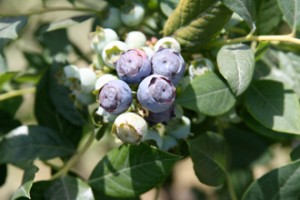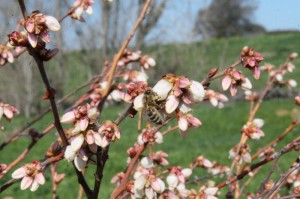 1. Protect Future Generations
1. Protect Future Generations
Children can be up to up to 164 times more sensitive than adults to at least eight widely used cancer-causing pesticides in food. Food choices you make now are critical to our children’s and planet’s health, which is why we keep our farm organic.
2. Protect Water Quality
The Environmental Protection Agency (EPA) estimates pesticides—some cancer causing—contaminate the groundwater in 38 states, polluting the primary source of drinking water for more than half the country’s population.
3. Higher Nutritional Content
There’s a good reason why many chefs use organic foods in their recipes—they taste better. Studies indicate that organically grown food has higher amounts of vitamin C, magnesium, phosphorus and iron—all nutrients vital for healthy functioning of our bodies. Eating organic blueberry products and organic processed fruits and vegetables will also increase antioxidant intakes by about 30 percent. It makes sense that organic farming systems lead to the nourishment of the plants and, ultimately our palates.
 4. Promote Biodiversity
4. Promote Biodiversity
A properly managed organic operation benefits wildlife and native ecosystems by promoting biological diversity. All forms of life from bacteria to mammals are promoted as well as the full range of natural processes upon which life depends.
5. Save Energy
American farms have changed drastically in the last 35 years, from family-based small businesses dependent on human energy to large-scale factory farms. Modern farming consumes 19% of the country’s totally energy supply, mostly consumed by the application of pesticides and nitrogen fertilizer. The production of organic corn requires 1/3 less fossil fuel energy than its conventional counterpart. Our blueberries farm in Stockton practices green farming.